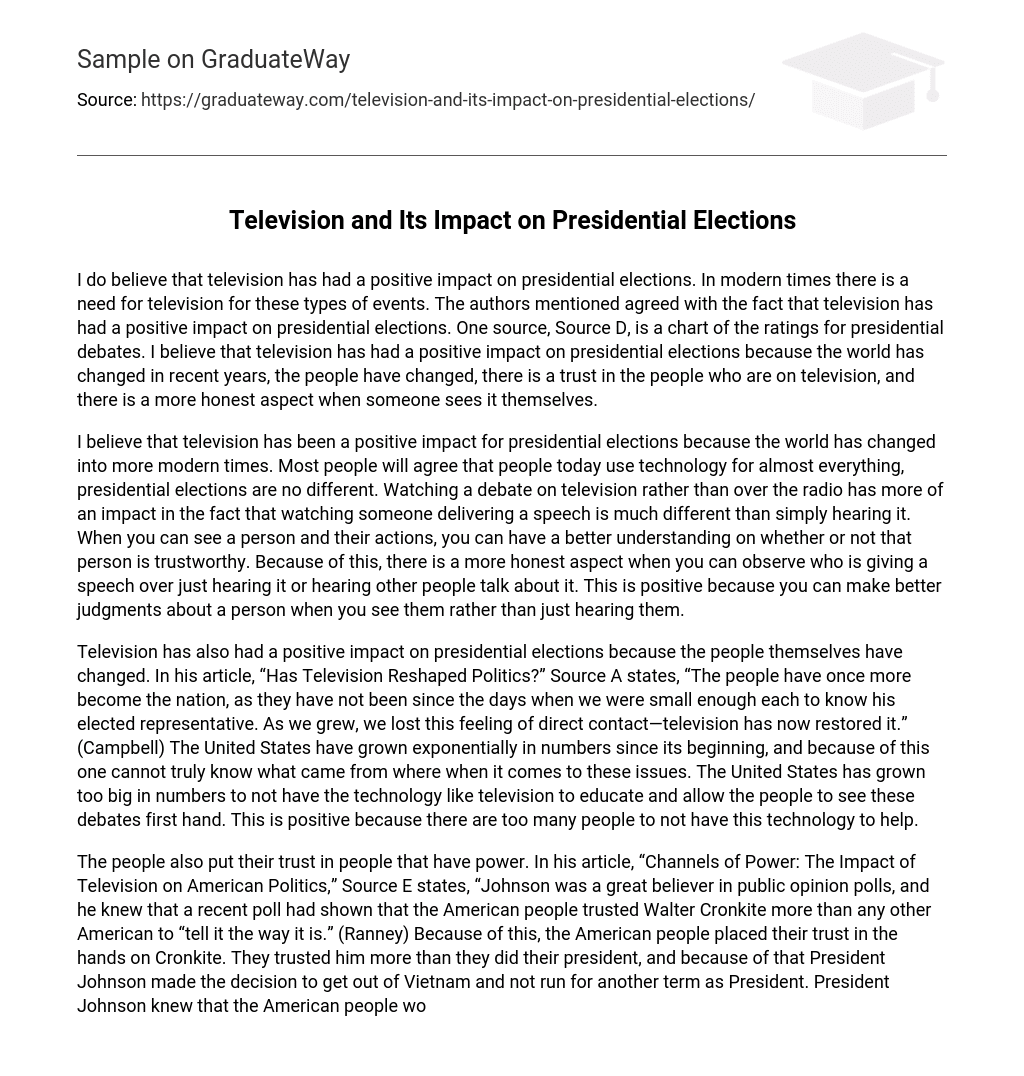Television’s positive impact on presidential elections is a belief shared by various authors and supported by Source D, a chart displaying ratings for presidential debates. This belief stems from the changing world and people, the trust established with television figures, and the transparency that television allows for.
The modern world widely acknowledges that television has a positive impact on presidential elections. It is recognized that technology plays a significant role in our daily lives, including the election process. When it comes to debates, television holds more importance than radio broadcasts because of its visual aspect. Watching someone give a speech has a different effect than just listening to it. By observing body language and actions, we can better understand their trustworthiness. This direct observation allows for a more genuine experience compared to relying on secondhand accounts. Ultimately, this visual component enables us to make more informed assessments of individuals.
Television has had a positive impact on presidential elections by transforming the people themselves. “Has Television Reshaped Politics?” (Source A) argues that television has brought back a sense of connection between the people and their elected representatives, a feeling that was lost as the country grew in size. The United States has expanded greatly in population over the years, making it difficult to discern the origins of various political issues. Television serves as a tool to educate and enable a firsthand view of debates, which is crucial in a country with a large population. Having this technology is essential in engaging and informing such a vast number of people.
According to Source E’s article “Channels of Power: The Impact of Television on American Politics,” the American people trust individuals with power. The article mentions that President Johnson trusted the American people’s trust in Walter Cronkite, as indicated by a poll. This trust in Cronkite exceeded their trust in the president, leading President Johnson to decide to withdraw from Vietnam and not seek reelection. President Johnson understood that the American people would value Cronkite’s perspective more than his own. Therefore, television played a positive role as it allowed the public to directly witness Cronkite’s statements.
The television ratings for presidential debates have been decreasing over time, as depicted in Source D. This decline can be attributed to two primary factors: the audience’s ever-changing preferences and the limitations of current technology. Similar to the previous argument, where it was essential for viewers to visually perceive the candidates in order to fully grasp their messages, there is now a necessity for inventive approaches in presenting candidates during debates to enhance understanding. This trend exemplifies humanity’s innate drive to continually seek better comprehension of matters that are important to them.
Television plays a crucial role in presidential elections, enabling people to form educated opinions about the candidates. The widespread access to this technology is vital for effective information sharing due to the large population of the United States. Moreover, television serves as a platform that fosters trust in authoritative figures and empowers viewers to personally verify facts. Ultimately, it fulfills individuals’ desire for comprehensive knowledge about the candidates they will vote for.





